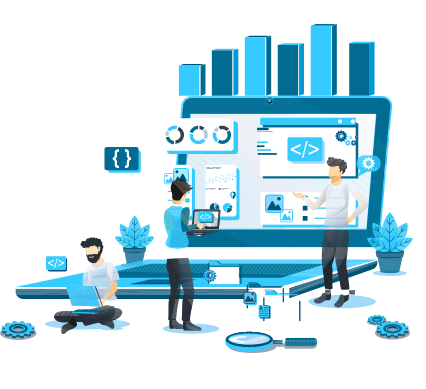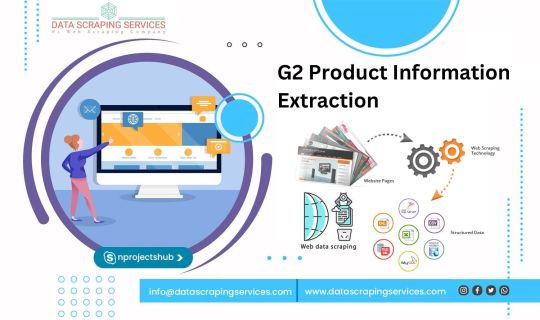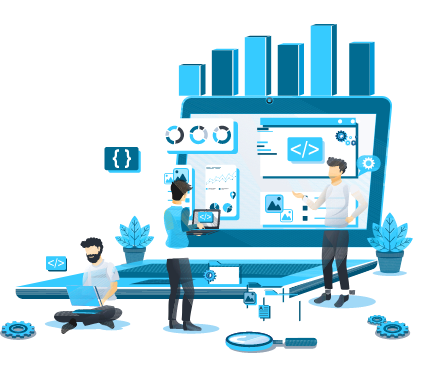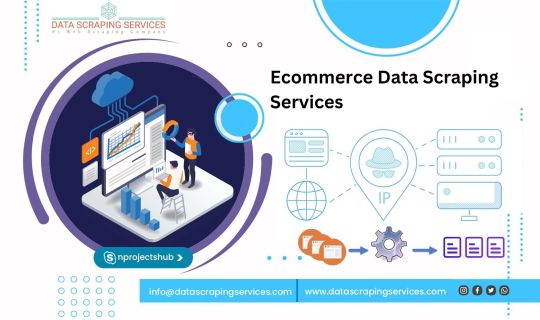#san diego software development company
Explore tagged Tumblr posts
Text
Software Development San Deigo
BitCot is a top software development company located in San Diego. Our goal is to bring your ideas to life by providing innovative solutions for businesses of all sizes. Our team of skilled software developers in San Diego is dedicated to creating dynamic and advanced software that meets your unique requirements. We are focused on delivering high-quality and affordable solutions that make your business run smoother, improve customer satisfaction, and foster growth. Whether you're a new startup or a well-established company, we can assist you in elevating your business with our customized software development services. For more information visit our website: https://www.bitcot.com/software-development-san-diego/

0 notes
Text
Best Software Development Company | SynergyTop
Level up your business with SynergyTop, a leading software development company. They boost your success by creating personalized and innovative solutions. The company developers use the latest technologies to build impressive websites and mobile apps that surpass customer expectations. For more details Call 619-349-4911 or +91 7879123770
#software development company#Custom Software Development#Software Development#custom software development company#enterprise software development#saas application development company#software development agency#software development consulting services#software development firm#software development services#software development services company#software companies in san diego#top 10 software companies in san diego#software development services company san diego#top it company in san diego#it software companies in san diego#top software companies in san diego#software companies in san diego california#san diego software companies#top 10 it software companies in san diego#software development company san diego#software development company in san diego#san diego software development companies#best software company in san diego#best software development company in san diego#it software company in san diego#san diego software development company#software developer company in san diego#best software companies in san diego#best it companies in san diego
0 notes
Text
"Open" "AI" isn’t

Tomorrow (19 Aug), I'm appearing at the San Diego Union-Tribune Festival of Books. I'm on a 2:30PM panel called "Return From Retirement," followed by a signing:
https://www.sandiegouniontribune.com/festivalofbooks

The crybabies who freak out about The Communist Manifesto appearing on university curriculum clearly never read it – chapter one is basically a long hymn to capitalism's flexibility and inventiveness, its ability to change form and adapt itself to everything the world throws at it and come out on top:
https://www.marxists.org/archive/marx/works/1848/communist-manifesto/ch01.htm#007
Today, leftists signal this protean capacity of capital with the -washing suffix: greenwashing, genderwashing, queerwashing, wokewashing – all the ways capital cloaks itself in liberatory, progressive values, while still serving as a force for extraction, exploitation, and political corruption.
A smart capitalist is someone who, sensing the outrage at a world run by 150 old white guys in boardrooms, proposes replacing half of them with women, queers, and people of color. This is a superficial maneuver, sure, but it's an incredibly effective one.
In "Open (For Business): Big Tech, Concentrated Power, and the Political Economy of Open AI," a new working paper, Meredith Whittaker, David Gray Widder and Sarah B Myers document a new kind of -washing: openwashing:
https://papers.ssrn.com/sol3/papers.cfm?abstract_id=4543807
Openwashing is the trick that large "AI" companies use to evade regulation and neutralizing critics, by casting themselves as forces of ethical capitalism, committed to the virtue of openness. No one should be surprised to learn that the products of the "open" wing of an industry whose products are neither "artificial," nor "intelligent," are also not "open." Every word AI huxters say is a lie; including "and," and "the."
So what work does the "open" in "open AI" do? "Open" here is supposed to invoke the "open" in "open source," a movement that emphasizes a software development methodology that promotes code transparency, reusability and extensibility, which are three important virtues.
But "open source" itself is an offshoot of a more foundational movement, the Free Software movement, whose goal is to promote freedom, and whose method is openness. The point of software freedom was technological self-determination, the right of technology users to decide not just what their technology does, but who it does it to and who it does it for:
https://locusmag.com/2022/01/cory-doctorow-science-fiction-is-a-luddite-literature/
The open source split from free software was ostensibly driven by the need to reassure investors and businesspeople so they would join the movement. The "free" in free software is (deliberately) ambiguous, a bit of wordplay that sometimes misleads people into thinking it means "Free as in Beer" when really it means "Free as in Speech" (in Romance languages, these distinctions are captured by translating "free" as "libre" rather than "gratis").
The idea behind open source was to rebrand free software in a less ambiguous – and more instrumental – package that stressed cost-savings and software quality, as well as "ecosystem benefits" from a co-operative form of development that recruited tinkerers, independents, and rivals to contribute to a robust infrastructural commons.
But "open" doesn't merely resolve the linguistic ambiguity of libre vs gratis – it does so by removing the "liberty" from "libre," the "freedom" from "free." "Open" changes the pole-star that movement participants follow as they set their course. Rather than asking "Which course of action makes us more free?" they ask, "Which course of action makes our software better?"
Thus, by dribs and drabs, the freedom leeches out of openness. Today's tech giants have mobilized "open" to create a two-tier system: the largest tech firms enjoy broad freedom themselves – they alone get to decide how their software stack is configured. But for all of us who rely on that (increasingly unavoidable) software stack, all we have is "open": the ability to peer inside that software and see how it works, and perhaps suggest improvements to it:
https://www.youtube.com/watch?v=vBknF2yUZZ8
In the Big Tech internet, it's freedom for them, openness for us. "Openness" – transparency, reusability and extensibility – is valuable, but it shouldn't be mistaken for technological self-determination. As the tech sector becomes ever-more concentrated, the limits of openness become more apparent.
But even by those standards, the openness of "open AI" is thin gruel indeed (that goes triple for the company that calls itself "OpenAI," which is a particularly egregious openwasher).
The paper's authors start by suggesting that the "open" in "open AI" is meant to imply that an "open AI" can be scratch-built by competitors (or even hobbyists), but that this isn't true. Not only is the material that "open AI" companies publish insufficient for reproducing their products, even if those gaps were plugged, the resource burden required to do so is so intense that only the largest companies could do so.
Beyond this, the "open" parts of "open AI" are insufficient for achieving the other claimed benefits of "open AI": they don't promote auditing, or safety, or competition. Indeed, they often cut against these goals.
"Open AI" is a wordgame that exploits the malleability of "open," but also the ambiguity of the term "AI": "a grab bag of approaches, not… a technical term of art, but more … marketing and a signifier of aspirations." Hitching this vague term to "open" creates all kinds of bait-and-switch opportunities.
That's how you get Meta claiming that LLaMa2 is "open source," despite being licensed in a way that is absolutely incompatible with any widely accepted definition of the term:
https://blog.opensource.org/metas-llama-2-license-is-not-open-source/
LLaMa-2 is a particularly egregious openwashing example, but there are plenty of other ways that "open" is misleadingly applied to AI: sometimes it means you can see the source code, sometimes that you can see the training data, and sometimes that you can tune a model, all to different degrees, alone and in combination.
But even the most "open" systems can't be independently replicated, due to raw computing requirements. This isn't the fault of the AI industry – the computational intensity is a fact, not a choice – but when the AI industry claims that "open" will "democratize" AI, they are hiding the ball. People who hear these "democratization" claims (especially policymakers) are thinking about entrepreneurial kids in garages, but unless these kids have access to multi-billion-dollar data centers, they can't be "disruptors" who topple tech giants with cool new ideas. At best, they can hope to pay rent to those giants for access to their compute grids, in order to create products and services at the margin that rely on existing products, rather than displacing them.
The "open" story, with its claims of democratization, is an especially important one in the context of regulation. In Europe, where a variety of AI regulations have been proposed, the AI industry has co-opted the open source movement's hard-won narrative battles about the harms of ill-considered regulation.
For open source (and free software) advocates, many tech regulations aimed at taming large, abusive companies – such as requirements to surveil and control users to extinguish toxic behavior – wreak collateral damage on the free, open, user-centric systems that we see as superior alternatives to Big Tech. This leads to the paradoxical effect of passing regulation to "punish" Big Tech that end up simply shaving an infinitesimal percentage off the giants' profits, while destroying the small co-ops, nonprofits and startups before they can grow to be a viable alternative.
The years-long fight to get regulators to understand this risk has been waged by principled actors working for subsistence nonprofit wages or for free, and now the AI industry is capitalizing on lawmakers' hard-won consideration for collateral damage by claiming to be "open AI" and thus vulnerable to overbroad regulation.
But the "open" projects that lawmakers have been coached to value are precious because they deliver a level playing field, competition, innovation and democratization – all things that "open AI" fails to deliver. The regulations the AI industry is fighting also don't necessarily implicate the speech implications that are core to protecting free software:
https://www.eff.org/deeplinks/2015/04/remembering-case-established-code-speech
Just think about LLaMa-2. You can download it for free, along with the model weights it relies on – but not detailed specs for the data that was used in its training. And the source-code is licensed under a homebrewed license cooked up by Meta's lawyers, a license that only glancingly resembles anything from the Open Source Definition:
https://opensource.org/osd/
Core to Big Tech companies' "open AI" offerings are tools, like Meta's PyTorch and Google's TensorFlow. These tools are indeed "open source," licensed under real OSS terms. But they are designed and maintained by the companies that sponsor them, and optimize for the proprietary back-ends each company offers in its own cloud. When programmers train themselves to develop in these environments, they are gaining expertise in adding value to a monopolist's ecosystem, locking themselves in with their own expertise. This a classic example of software freedom for tech giants and open source for the rest of us.
One way to understand how "open" can produce a lock-in that "free" might prevent is to think of Android: Android is an open platform in the sense that its sourcecode is freely licensed, but the existence of Android doesn't make it any easier to challenge the mobile OS duopoly with a new mobile OS; nor does it make it easier to switch from Android to iOS and vice versa.
Another example: MongoDB, a free/open database tool that was adopted by Amazon, which subsequently forked the codebase and tuning it to work on their proprietary cloud infrastructure.
The value of open tooling as a stickytrap for creating a pool of developers who end up as sharecroppers who are glued to a specific company's closed infrastructure is well-understood and openly acknowledged by "open AI" companies. Zuckerberg boasts about how PyTorch ropes developers into Meta's stack, "when there are opportunities to make integrations with products, [so] it’s much easier to make sure that developers and other folks are compatible with the things that we need in the way that our systems work."
Tooling is a relatively obscure issue, primarily debated by developers. A much broader debate has raged over training data – how it is acquired, labeled, sorted and used. Many of the biggest "open AI" companies are totally opaque when it comes to training data. Google and OpenAI won't even say how many pieces of data went into their models' training – let alone which data they used.
Other "open AI" companies use publicly available datasets like the Pile and CommonCrawl. But you can't replicate their models by shoveling these datasets into an algorithm. Each one has to be groomed – labeled, sorted, de-duplicated, and otherwise filtered. Many "open" models merge these datasets with other, proprietary sets, in varying (and secret) proportions.
Quality filtering and labeling for training data is incredibly expensive and labor-intensive, and involves some of the most exploitative and traumatizing clickwork in the world, as poorly paid workers in the Global South make pennies for reviewing data that includes graphic violence, rape, and gore.
Not only is the product of this "data pipeline" kept a secret by "open" companies, the very nature of the pipeline is likewise cloaked in mystery, in order to obscure the exploitative labor relations it embodies (the joke that "AI" stands for "absent Indians" comes out of the South Asian clickwork industry).
The most common "open" in "open AI" is a model that arrives built and trained, which is "open" in the sense that end-users can "fine-tune" it – usually while running it on the manufacturer's own proprietary cloud hardware, under that company's supervision and surveillance. These tunable models are undocumented blobs, not the rigorously peer-reviewed transparent tools celebrated by the open source movement.
If "open" was a way to transform "free software" from an ethical proposition to an efficient methodology for developing high-quality software; then "open AI" is a way to transform "open source" into a rent-extracting black box.
Some "open AI" has slipped out of the corporate silo. Meta's LLaMa was leaked by early testers, republished on 4chan, and is now in the wild. Some exciting stuff has emerged from this, but despite this work happening outside of Meta's control, it is not without benefits to Meta. As an infamous leaked Google memo explains:
Paradoxically, the one clear winner in all of this is Meta. Because the leaked model was theirs, they have effectively garnered an entire planet's worth of free labor. Since most open source innovation is happening on top of their architecture, there is nothing stopping them from directly incorporating it into their products.
https://www.searchenginejournal.com/leaked-google-memo-admits-defeat-by-open-source-ai/486290/
Thus, "open AI" is best understood as "as free product development" for large, well-capitalized AI companies, conducted by tinkerers who will not be able to escape these giants' proprietary compute silos and opaque training corpuses, and whose work product is guaranteed to be compatible with the giants' own systems.
The instrumental story about the virtues of "open" often invoke auditability: the fact that anyone can look at the source code makes it easier for bugs to be identified. But as open source projects have learned the hard way, the fact that anyone can audit your widely used, high-stakes code doesn't mean that anyone will.
The Heartbleed vulnerability in OpenSSL was a wake-up call for the open source movement – a bug that endangered every secure webserver connection in the world, which had hidden in plain sight for years. The result was an admirable and successful effort to build institutions whose job it is to actually make use of open source transparency to conduct regular, deep, systemic audits.
In other words, "open" is a necessary, but insufficient, precondition for auditing. But when the "open AI" movement touts its "safety" thanks to its "auditability," it fails to describe any steps it is taking to replicate these auditing institutions – how they'll be constituted, funded and directed. The story starts and ends with "transparency" and then makes the unjustifiable leap to "safety," without any intermediate steps about how the one will turn into the other.
It's a Magic Underpants Gnome story, in other words:
Step One: Transparency
Step Two: ??
Step Three: Safety
https://www.youtube.com/watch?v=a5ih_TQWqCA
Meanwhile, OpenAI itself has gone on record as objecting to "burdensome mechanisms like licenses or audits" as an impediment to "innovation" – all the while arguing that these "burdensome mechanisms" should be mandatory for rival offerings that are more advanced than its own. To call this a "transparent ruse" is to do violence to good, hardworking transparent ruses all the world over:
https://openai.com/blog/governance-of-superintelligence
Some "open AI" is much more open than the industry dominating offerings. There's EleutherAI, a donor-supported nonprofit whose model comes with documentation and code, licensed Apache 2.0. There are also some smaller academic offerings: Vicuna (UCSD/CMU/Berkeley); Koala (Berkeley) and Alpaca (Stanford).
These are indeed more open (though Alpaca – which ran on a laptop – had to be withdrawn because it "hallucinated" so profusely). But to the extent that the "open AI" movement invokes (or cares about) these projects, it is in order to brandish them before hostile policymakers and say, "Won't someone please think of the academics?" These are the poster children for proposals like exempting AI from antitrust enforcement, but they're not significant players in the "open AI" industry, nor are they likely to be for so long as the largest companies are running the show:
https://papers.ssrn.com/sol3/papers.cfm?abstract_id=4493900


I'm kickstarting the audiobook for "The Internet Con: How To Seize the Means of Computation," a Big Tech disassembly manual to disenshittify the web and make a new, good internet to succeed the old, good internet. It's a DRM-free book, which means Audible won't carry it, so this crowdfunder is essential. Back now to get the audio, Verso hardcover and ebook:
http://seizethemeansofcomputation.org

If you'd like an essay-formatted version of this post to read or share, here's a link to it on pluralistic.net, my surveillance-free, ad-free, tracker-free blog:
https://pluralistic.net/2023/08/18/openwashing/#you-keep-using-that-word-i-do-not-think-it-means-what-you-think-it-means

Image: Cryteria (modified) https://commons.wikimedia.org/wiki/File:HAL9000.svg
CC BY 3.0 https://creativecommons.org/licenses/by/3.0/deed.en
#pluralistic#llama-2#meta#openwashing#floss#free software#open ai#open source#osi#open source initiative#osd#open source definition#code is speech
253 notes
·
View notes
Text
3 Books Every Twenty-Something Should Read (By a Twenty-Something)
(In no particular order)
The Defining Decade by Dr. Meg Jay
This book has been my go-to for various points of my college (and now post-grad) career. Whenever I felt that I was "lost" or had a "mid-life crisis", this book always came to the rescue.
In this book, Meg Jay goes through how to best use your 20s. Whether that be through relationships, hobbies, education and career choices. She also expands on the concept of developing identity capital which is a collection of things that make you, you. One of my favourite quotes by Meg is, "“Twentysomething is like airplanes, planes just leaving New York City-bound somewhere west. Right after takeoff, a slight course change is a difference between landing in either Seattle or San Diego. But once a plane is nearly in San Diego, only a big detour will redirect it to the northwest.”
2. Quit Like a Millionaire by Bryce Leung and Kristy Shen
This is a personal finance book that details how a Canadian couple, Bryce and Kristy, retired in their thirties. Both working as software engineers, they sought to buy a home in Toronto but found that getting into the housing market was out of reach. Instead, they opted to use the money that could have gone towards a house into the stock market where they were both able to retire and travel the world.
Reading this opened my eyes to the various possibilities and routes to financial independence. One that isn't defeatist about the current housing market, but rather optimistic about other possibilities!
3. The Almanack of Naval Ravikant
The writer, Naval Ravikant, is the founder of various companies in Silicon Valley and wrote a guide to building wealth and emotional well-being unlike anything else I've seen. Most books I read surrounding generating wealth are pretty redundant, but what I found by reading this book was that everything written was unique yet so simple.
#personal development#books#book reviews#naval#naval ravikant#the almanack of naval ravikant#kristy shen#bryce leung#fire#personal finance#fire movement#financial independence#the defining decade#meg jay#defining decade#book#roncy89
3 notes
·
View notes
Text
Architectural BIM CAD services Provider in USA

Silicon Engineering Consultant Pvt. Ltd. gives top-notch quality of Architectural BIM Engineering Servies. Our Architectural BIM Engineering Services typically involve the use of BIM software to create accurate and detailed 3D models of buildings or structures. Architectural BIM Design and Drafting Services involve the creation of detailed plans, sections, elevations, and other technical drawings based on the BIM models. Architectural BIM Outsourcing Services involve contracting with a third-party service provider to perform BIM-related tasks on behalf of a company or organization. Connected with US for your next Architectural BIM Engineering CAD Services Provider. Architectural BIM Engineering Including Services: - Detailed Schematic Designs - Proper Drawings and Documentation - Design Development and implementation
Visit Here: https://www.siliconec.com/building-information-modelling/architectural-bim-services.html
We provide Architectural BIM Services in USA major cities like New York, Los Angeles, Chicago, Houston, San Diego, Dallas, San Jose, San Antonio, Los Angeles, San Francisco, Boston, Seattle, Washington
We provide Architectural BIM Services in UK major cities like London, Liverpool, Newcastle, Bristol, Manchester, Sheffield, York, Cambridge, Norwich, Cardiff
We provide Architectural BIM Services in New Zealand's major cities like Auckland, Christchurch, Dunedin, Rotorua, Whangarei, New Plymouth, Wellington, Dunedin, Rotorua, Tauranga
We provide Architectural BIM Services in Australia's major cities like Sydney, Brisbane, Hobart, Newcastle, Canberra, Melbourne, Perth, Cairns, Gold Coast, Darwin, Brisbane
#ArchitecturalBIMServices#ArchitecturalBIMConsultingServices#BIMModelingServices#BIMEngineeringServices#BIMServiceProviders#BIMOutsourcingServices#ArchitecturalBIMModelingServices#BIMArchitecturalServices#CADServices#CADD#SiliconEC#India#USA#UK#NewZealand#Australia
1 note
·
View note
Text
Staff Software Engineer - Java Developer
Job title: Staff Software Engineer – Java Developer Company: ServiceNow Job description: Company DescriptionIt all started in sunny San Diego, California in 2004 when a visionary engineer, Fred Luddy, saw the potential to transform how we work. Fast forward to today — ServiceNow stands as a global market leader, bringing innovative AI-enhanced technology to over 8,100 customers, including 85% of…
0 notes
Text
California: The Ultimate Destination for Skilled Workers in the USA
California is often regarded as one of the best places in the United States for skilled workers to settle. Known for its thriving economy, diverse culture, and abundant opportunities, the Golden State offers an unparalleled environment for professionals seeking to establish a successful career. This article explores why California stands out as a top choice for skilled workers and provides an overview of the EB2 NIW visa for those aspiring to work and live in the USA.

1. Why Skilled Workers Prefer California
California has long been a magnet for skilled workers from around the globe. Several factors make it an attractive destination, including its dynamic industries, quality of life, and opportunities for career advancement.
1.1 Thriving Economy
California boasts the largest state economy in the USA and ranks as the fifth-largest economy globally. The state is a hub for industries such as technology, healthcare, entertainment, and agriculture.
Technology: Silicon Valley, located in the San Francisco Bay Area, is the epicenter of technological innovation. Companies like Google, Apple, and Tesla offer skilled professionals an opportunity to work at the cutting edge of their fields.
Healthcare: With world-renowned hospitals and research institutions, California offers excellent career opportunities for healthcare professionals.
Entertainment: Los Angeles, the entertainment capital, provides countless opportunities in film, television, and music.
1.2 Cultural Diversity
California is one of the most culturally diverse states in the USA. This inclusivity makes it easier for skilled workers from various backgrounds to integrate and feel at home. The state is known for its welcoming attitude and thriving immigrant communities.
1.3 High Quality of Life
California offers a high standard of living with access to top-rated schools, modern infrastructure, and an array of recreational activities. From pristine beaches to national parks, the state provides a perfect balance between work and leisure.
2. Key Industries for Skilled Workers
California's job market is as diverse as its population. Here are the key industries that make California a haven for skilled professionals:
2.1 Technology and Innovation
California leads the nation in tech employment, with opportunities in software development, artificial intelligence, and cybersecurity.
2.2 Healthcare
From physicians to researchers, healthcare professionals can find rewarding roles in California's robust healthcare system.
2.3 Aerospace and Defense
The aerospace industry, including companies like SpaceX and Boeing, thrives in California, offering jobs for engineers and scientists.
2.4 Agriculture
As the leading agricultural state, California provides opportunities for agricultural scientists, engineers, and specialists in sustainable farming.
2.5 Entertainment and Media
The state's thriving entertainment industry offers roles for creatives and technical professionals alike.
3. Top Cities for Skilled Workers in California
California's vast size means skilled workers can choose from various cities, each offering unique advantages.
3.1 San Francisco
Known for its tech industry, San Francisco is ideal for IT professionals, entrepreneurs, and innovators.
3.2 Los Angeles
The city is a hub for the entertainment industry and offers opportunities in media, healthcare, and technology.
3.3 San Diego
San Diego's economy thrives on biotechnology, healthcare, and defense, making it perfect for scientists and engineers.
3.4 Sacramento
The state capital offers a lower cost of living and job opportunities in government and public services.
3.5 Fresno
Fresno is an agricultural powerhouse, ideal for professionals in the farming and agritech industries.

4. Challenges Skilled Workers May Face
While California offers numerous benefits, it also comes with challenges:
High Cost of Living: Housing and daily expenses can be expensive, especially in cities like San Francisco and Los Angeles.
Competition: The job market is competitive, requiring skilled workers to have top-notch qualifications.
Traffic and Commute Times: Major cities like Los Angeles are infamous for their traffic congestion.
5. Visa Options for Skilled Workers: Spotlight on EB2 NIW
For skilled workers looking to settle in California, the EB2 NIW (Employment-Based Second Preference National Interest Waiver) visa is a fantastic option. This visa allows professionals to bypass the labor certification process and directly apply for permanent residency.
5.1 What is EB2 NIW?
The EB2 NIW visa is designed for individuals whose skills and work are in the national interest of the USA. It is particularly beneficial for professionals in fields like science, technology, and healthcare.
5.2 Eligibility Criteria
To qualify for an EB2 NIW visa, applicants must demonstrate:
Exceptional Ability: Proof of expertise in their field.
National Interest: Evidence that their work significantly benefits the United States.
Advanced Degree: A master’s degree or higher is typically required.
5.3 Benefits of the EB2 NIW Visa
No Job Offer Required: Unlike other employment-based visas, the EB2 NIW does not require employer sponsorship.
Faster Path to Permanent Residency: The visa streamlines the green card process for eligible individuals.
Family Inclusion: Spouses and children can also apply for green cards under this visa category.
5.4 Why California is Perfect for EB2 NIW Holders
California's thriving industries and focus on innovation make it a prime location for EB2 NIW visa holders. Professionals in technology, healthcare, and environmental sciences can find ample opportunities to contribute to the state's economy and society.
6. Conclusion
California is undeniably one of the best places in the USA for skilled workers to settle. With its dynamic economy, cultural diversity, and career opportunities, the state offers a promising future for professionals from all walks of life. For those seeking a streamlined immigration path, the EB2 NIW visa provides an excellent opportunity to live and work in California while contributing to the national interest.
If you’re a skilled professional aspiring to make California your home, explore the EB2 NIW visa process. With the right preparation and guidance, you can achieve your American Dream in the Golden State.
Discover how the EB2 NIW visa can help you build a successful career in the USA. Click here for a complete guide.
1 note
·
View note
Text
G2 Product Information Extraction

G2 Product Information Extraction
Unlocking Insights with G2 Product Information Extraction by DataScrapingServices.com. In today's highly competitive business environment, staying ahead of the curve requires accurate and real-time information. G2 is a leading platform that houses thousands of product reviews, ratings, and essential insights from users about various software and services. To leverage this wealth of information effectively, G2 Product Information Extraction by DataScrapingServices.com is an indispensable tool. Our service helps you gather valuable data from G2, enabling businesses to stay informed and competitive by analyzing trends, customer sentiments, and market dynamics.
List of Data Fields
Our G2 Product Information Extraction service captures a wide array of valuable data fields, including:
- Product Name: Names of the software or services listed on G2.
- Company Details: Basic information about the company that owns the product.
- Product Features: Key features and capabilities of each product.
- User Reviews and Ratings: In-depth customer reviews and overall ratings for each product.
- Pricing Information: Available pricing models and package details.
- Competitor Analysis: Comparative information on similar products in the market.
- Industry Category: Classification of the product based on industry or niche.
This comprehensive extraction of product data can be used to drive business strategies and improve marketing effectiveness.
Benefits of G2 Product Information Extraction
There are multiple benefits to utilizing G2 Product Information Extraction for your business:
1. Competitive Analysis: Our extraction service provides a detailed view of competitor offerings, helping you benchmark your product against others. This allows you to make informed decisions to improve your offerings and capture a larger market share.
2. Customer Sentiment Insights: The reviews and ratings we extract give you a deeper understanding of customer sentiments—what they love, and what can be improved in the product. This feedback can fuel product development strategies.
3. Informed Marketing Strategies: Understanding the features and pricing of competitor products lets you fine-tune your own marketing campaigns, ensuring you're hitting the right messaging points and price comparisons.
4. Real-time Data for Decision Making: Since G2 is constantly updated, having access to real-time data helps you stay on top of market trends, customer needs, and emerging competitors.
Best eCommerce Data Scraping Services Provider
PriceGrabber Product Pricing Scraping
Asda UK Product Details Scraping
Amazon Product Price Scraping
Online Fashion Store Data Extraction
Amazon.ca Product Information Scraping
Retail Website Data Scraping Services
Tesco Product Details Scraping
Homedepot Product Listing Scraping
Marks & Spencer Product Details Scraping
Extracting Product Information from Kogan
Best G2 Product Information Extraction Services in USA:
Fresno, Orlando, Sacramento, Oklahoma City, Colorado, San Francisco, Fort Worth, Louisville, Seattle, Columbus, Milwaukee, Raleigh, San Francisco, Washington, Las Vegas, Denver, Nashville, Bakersfield, Mesa, Indianapolis, Jacksonville, Albuquerque, Colorado, Houston, Sacramento, New Orleans, Kansas City, San Diego, Omaha, El Paso, Atlanta, Memphis, Dallas, San Antonio, Long Beach, Fresno, Austin, Philadelphia, Orlando, Long Beach, Wichita, Boston, Virginia Beach, Tulsa, San Jose, Chicago, Charlotte, Tucson and New York.
Conclusion
In the fast-paced world of technology and business, having access to accurate, timely, and relevant data is crucial. G2 Product Information Extraction by DataScrapingServices.com enables businesses to harness the power of G2's vast data for improved product positioning, competitive analysis, and customer insights. Contact us today to learn how we can help you stay ahead with our data extraction services.
Website: Datascrapingservices.com
Email: [email protected]
#g2productinformationextraction#g2productdatascraping#competitiveanalysis#customersentiments#datascrapingservices#productinformation#marketinsights#businessintelligence#dataanalysis
0 notes
Text
Master Medical Billing and Coding with Top Online Courses: Your Comprehensive Guide to Success
**Master Medical Billing and Coding with Top Online Courses: Your Comprehensive Guide to Success**
Are you interested in pursuing a rewarding career in the healthcare industry but unsure where to start? Medical billing and coding could be the perfect fit for you. As the healthcare field continues to grow, the demand for skilled medical billers and coders is on the rise. With the right training and certification, you can embark on a successful career in this in-demand field.
In this comprehensive guide, we will explore the benefits of mastering medical billing and coding, top online courses to help you succeed, practical tips for success, and real-life case studies to inspire you on your journey.
**Benefits of Mastering Medical Billing and Coding** – High demand: Healthcare facilities, insurance companies, and medical practices all rely on skilled medical billers and coders to accurately process claims and ensure proper reimbursement. - Flexibility: Medical billing and coding professionals can work in a variety of settings, including hospitals, clinics, insurance companies, and more. Some even choose to work remotely from home. – Competitive salaries: According to the Bureau of Labor Statistics, the median pay for medical records and health information technicians was $44,090 per year in 2020. – Career advancement: With additional training and certification, medical billers and coders can advance to supervisory or management roles within the healthcare industry.
**Top Online Courses for Medical Billing and Coding** 1. **AAPC** (American Academy of Professional Coders): Offers a comprehensive online training program for medical coding and billing. Courses cover CPT, ICD-10, and HCPCS coding, as well as medical terminology. 2. **AHIMA** (American Health Information Management Association): Provides online courses for medical coding, billing, and HIM (Health Information Management) professionals. AHIMA certification is highly respected in the industry. 3. **CareerStep**: Offers an online medical coding and billing program that includes coursework, exams, and real-world experience. Graduates are prepared to sit for the CPC exam. 4. **Penn Foster**: Provides online medical billing and coding courses with flexible study options. Students learn coding conventions, reimbursement methodologies, and electronic health records management. 5. **UC San Diego Extension**: Offers an online certificate program in medical coding and billing. Students gain hands-on experience with coding software and electronic health records.
**Practical Tips for Success in Medical Billing and Coding** – Stay current: The healthcare industry is always evolving, so it’s essential to stay up-to-date on the latest coding guidelines and regulations. – Develop strong communication skills: Medical billers and coders often work closely with healthcare providers, insurance companies, and patients, so effective communication is key. – Practice accuracy: Attention to detail is crucial in medical billing and coding to ensure claims are processed correctly and quickly. – Network: Join professional organizations, attend industry conferences, and connect with other medical billers and coders to stay informed and expand your career opportunities.
**Real-Life Case Studies** – **Case Study 1: Sarah**: After completing an online medical coding course through CareerStep, Sarah passed the CPC exam and secured a position at a local clinic. She now enjoys a flexible work-from-home schedule and a competitive salary. – **Case Study 2: John**: With a background in healthcare administration, John decided to enhance his skills by enrolling in an online medical billing and coding program at AAPC. He quickly advanced to a supervisory role at a major hospital and oversees a team of coders.
**Conclusion** Mastering medical billing and coding can open up a world of opportunities in the healthcare industry. By investing in top online courses, staying current with industry trends, and honing your skills, you can pave the way for a successful career in this in-demand field. Whether you’re a recent graduate or looking to transition into a new career, medical billing and coding could be the perfect fit for you. Start your journey today and unlock the door to a fulfilling and rewarding career.
youtube
https://medicalbillingcertificationprograms.org/master-medical-billing-and-coding-with-top-online-courses-your-comprehensive-guide-to-success/
0 notes
Text
San Diego Software Development Company

0 notes
Text
San Diego Software Development Company

BitCot is a top software development company in San Diego. Our goal is to bring your ideas to life by providing creative solutions to businesses of all sizes. Our team of skilled software developers is enthusiastic about making advanced software to meet your needs. We are dedicated to delivering high-quality and affordable solutions that improve your business operations, delight your customers, and help your business grow. Whether you are a startup or a big company, we can assist you in taking your business to the next level with our custom software development services.
For more information visit our website: https://www.bitcot.com/software-development-san-diego/
0 notes
Text
Truck Net provides all highest Quality Services as per Truck Stop Needs

TRUCK NET LLC SERVICES
TRUCK PARKING
CITY OF SAN DIEGO COMMUNITY OF OTAY MESA AND EAST OTAY MESA
After a long day on the road, the last thing our expert drivers need to worry about is finding a parking space. That’s why we offer over 150 parking spaces completely free of charge.
Learn More
TRUCK WASH
Our dedicated team will provide the same care and effort into cleaning your truck as they would for their own vehicles. Our professional washes are powered by state of the art Hotsy machinery with spot-free water. Our packages range from a basic truck wash to a truck, trailer & washout combo with acid cleaning for all metallic surfaces.
Learn More
SCALE
Our 4 axle 70’ scale by Avery- Weight-Tronix will ensure peace of mind when it comes to getting your load’s weight right every time. Our trained professionals keep detailed records of all certified weights that are requested at our station.
Learn More
ULTRA LOW SULPHUR DIESEL
We offer 100% Ulta Low Sulfur Diesel in comparison to the 20% dilution or B-20 that most competitors offer. This translates into cleaner engine performance leading to an increase in mileage with fewer stops for filter and engine maintenance. The saved time of our professional drivers and reduced expenses of our clients make our diesel the premium product on the market.
Learn More
WIFI SERVICES
WIFI at our stop is free, no fine print, no tricks, it’s completely free and reliable.
Learn More
FRESH MEXICAN CUISINE
We serve home style Mexican cuisine, fresh fruit salads, juices & sandwiches. All made fresh daily! Enjoy a meal upstairs and watch TV in our dining room, on our beautiful outdoor patio ...
Learn More
TRUCK AND AUTO STORAGE YARDS
National Enterprises is the largest landlord in Otay Mesa, owning over 2,200 acres and leasing over 350 acres to more than 100 logistics companies. Specializing in truck and car parking, open yard storage and land development opportunities, we offer leasing for both short and long-term tenants. In addition to outside parking and storage, we offer warehouse space with cold storage as well as office space for lease.
Learn More
AMENITIES
New granite showers to help you clean up and recharge after a long and grueling drive. We also offer a medical grade infrared sauna for some top tier relaxation that will keep your mind clear and sharp for as long as you need it to be.
Learn More
TRUCK LUBE
With no appointment necessary, Quick Truck Lube offers our busy clients the flexibility to come when it most convenient for them. You can expect only OEM recommended filters and oil products at our facilities.
Learn More
ELECTRIC VEHICLE CHARGERS
Leading the Charge: Our Pioneering 250 kW EV Chargers for Class 8 Trucks
Welcome to an era of unprecedented innovation in electric vehicle charging. We're thrilled to present to you our cutting-edge 250 kW EV chargers, the first of their kind in the United States, explicitly designed for Class 8 trucks. By engineering this breakthrough, we are heralding a new age of clean, efficient, and sustainable freight transportation.
The Class 8 truck market has been an industry overlooked by EV charger manufacturers - until now. Our exclusive 250 kW EV chargers address the unique needs of these heavy-duty vehicles. They represent an innovative leap that's capable of delivering high-speed charging solutions specifically for the largest trucks on our highways.
These state-of-the-art chargers have the capacity to recharge a Class 8 truck's battery in record time, providing efficiency that's unparalleled in the industry. It makes refueling times compatible with the tight schedules that define the trucking industry, significantly reducing downtime.
Our 250 kW chargers are not just the most powerful available today but are also designed with superior technology that extends battery life. This is achieved through our advanced charging software that safeguards the battery health while still ensuring high-speed charging.
Moreover, our chargers are built to endure, meeting the robustness requirements of the heavy-duty trucking industry. They are equipped with enhanced safety features, including weather-resistant designs and multiple built-in safety redundancies.
By introducing the 250 kW EV chargers, we're not only revolutionizing the electric charging landscape for Class 8 trucks but also helping to drive the transition towards a greener future. We're creating a ripple effect that encourages the adoption of electric trucks by making them more practical and viable in operational terms.
Join us on this exciting journey as we take a significant stride towards a more sustainable and energy-efficient future. Experience our pioneering 250 kW EV chargers and see firsthand how we're redefining the standards of electric charging for Class 8 trucks in the United States.
Learn More
DUTY FREE FUEL
In our efforts to continue to offer cutting edge technology we are also pioneering exclusive services that few in the industry have attempted.
The first of these is our duty free diesel station for all trucks crossing into Mexico, the first of its kind on the U.S. and Mexico border.
Please contact our station if you would like to register for this program.
Learn More
CNG STATION
Our state of the art compressed natural gas station will be the first of its kind in San Diego, geared towards class 8 trucks and offering unmatched fuel pricing well within all current and future emissions standards.
Will be completed by December of this year.
Learn More
Hours of Operation (For truck for truck maintenance and cleaning services, all others are open 24/7
VISIT: www.trucknetllc.com
#low sulfur diesel in san diego#commercial truck parking in california#best truck parking station in san diego#best truck wash in california#cng station in san diego#truck washing services in california#truck washing services in san diego#best truck stop in san diego#duty free fuel in california#duty free fuel in san diego
0 notes
Text
How to Choose the Right City for Your Senior Software Engineer Career Based on Industry Trends
Level Up Your Career: Choosing Your Senior Software Engineer Utopia
Congratulations! You've climbed the ranks and become a senior software engineer – a coveted role in today's tech-driven world. But with great power comes a great decision: where to take your skills next? Choosing the right city for your senior software engineer jobs can significantly impact your professional growth, lifestyle, and overall happiness. Fear not, code warrior! This guide will equip you to navigate the landscape and find your software engineer utopia.
Industry Trends: Following the Tech Titans
The tech landscape is constantly evolving, and certain cities tend to be epicenters of innovation. Here's how industry trends can guide your decision:
Emerging Technologies: Are you passionate about artificial intelligence, blockchain, or the metaverse? Research cities with a strong presence of companies leading the charge in these fields. This could be Silicon Valley for AI, Seattle for VR/AR, or New York City for FinTech.
Remote Work Revolution: The pandemic has changed the game. Many companies now embrace remote work, opening up a wider range of possibilities. Explore cities with a thriving tech scene but a lower cost of living compared to traditional tech hubs. Places like Austin, Denver, or Atlanta could be great options.
Specialization vs. Diversification: Do you thrive in a specialized tech niche or prefer a broader tech ecosystem? Cities like Boston or San Diego attract companies in specific sectors like healthcare or robotics. Alternatively, hubs like New York or Chicago offer a diverse mix of industries, allowing you to explore various opportunities.
Company Presence: Who's Your Dream Team?
Knowing which companies are hiring senior software engineers is crucial. Here's how to research company presence:
Tech Giants vs. Startups: Do you crave the stability of a large tech company or the exhilarating world of a startup? Research your dream companies and see where they have a strong presence. Senior software engineer roles might be more readily available at established tech giants in Silicon Valley, while exciting startup opportunities could be found in cities like Tel Aviv or Berlin.
Company Culture: A good company culture can make all the difference. Research the work environment, values, and employee reviews for companies you're interested in. This will help you choose a place that aligns with your work style and personal values.
Networking Events: Attending industry conferences or meetups in different cities can be a fantastic way to connect with companies and get a feel for the local tech scene. This allows you to explore opportunities beyond what you might find online and make valuable connections with potential employers.
Growth Prospects: Planting Seeds for the Future
Your career journey doesn't end with your current position. Consider these factors when evaluating a city's growth prospects:
Startup Ecosystem: Does the city have a vibrant startup scene with opportunities for growth within a young company? Look for cities with co-working spaces, incubator programs, and venture capital presence.
Education and Training: Does the city offer access to continuing education and training programs relevant to your field? This could be essential for staying ahead of the curve in the ever-evolving tech landscape. Cities with renowned universities or tech-focused bootcamps might be ideal.
Professional Development: Are there opportunities for conferences, workshops, and networking events aimed at senior software engineers? This allows you to stay up-to-date with the latest trends, hone your skills, and connect with other professionals.
Beyond the Code: Lifestyle Considerations
Remember, your career isn't everything. Consider factors like:
Cost of Living: A high-paying job loses its luster if it can't cover your living expenses. Research housing costs, transportation options, and overall affordability to determine your financial well-being.
Work-Life Balance: Is the city known for a healthy work-life balance? Crunch culture might be a deal-breaker for some. Research the average work hours and company culture to find a city that prioritizes both professional success and personal well-being.
Personal Interests: Do you crave bustling city life or yearn for a nature escape? Choose a city that offers activities and amenities you enjoy outside of work. A vibrant art scene, outdoor recreation opportunities, or a diverse culinary scene can significantly enhance your overall quality of life.
The Final Code: Writing Your Utopia Story
Choosing your ideal city as a senior software engineer requires careful consideration of industry trends, company presence, growth prospects, and personal lifestyle preferences. By following these steps and conducting in-depth research, you can craft your software engineer utopia story. Remember, the perfect city doesn't exist – it's the one that perfectly complements your unique career aspirations and personal desires. So, research, explore, and get ready to code your way to a future you love!
0 notes
Text
ResMed Inc: Exploring Innovations and Patents
ResMed Inc is a global leader in the development and manufacturing of medical devices for the treatment of sleep-related breathing disorders, respiratory conditions, and other chronic diseases. In this article, we delve into ResMed Inc’s innovations and patents, highlighting the company's commitment to advancing healthcare through technology and research.
Introduction to ResMed Inc
Since its establishment in 1989, ResMed Inc has been at the forefront of innovation in sleep and respiratory medicine. Headquartered in San Diego, California, ResMed Inc is dedicated to improving the quality of life for patients worldwide through the development of cutting-edge medical devices and digital health solutions.
Innovations in Sleep and Respiratory Care
ResMed Inc has a rich history of innovation, with a focus on developing advanced therapies and technologies to address the diverse needs of patients with sleep-related breathing disorders and respiratory conditions.
Continuous Positive Airway Pressure (CPAP) Therapy
ResMed Inc revolutionized the treatment of obstructive sleep apnea (OSA) with the introduction of CPAP therapy. CPAP devices deliver a continuous flow of air through a mask worn during sleep, preventing airway collapse and maintaining open airways, thus alleviating symptoms of OSA.
Bi-level Positive Airway Pressure (BiPAP) Therapy
Building on the success of CPAP therapy, ResMed Inc pioneered BiPAP therapy, which delivers two distinct levels of air pressure during the breathing cycle. BiPAP devices are particularly beneficial for patients who require higher pressure support or have difficulty exhaling against continuous pressure.
Adaptive Servo-Ventilation (ASV) Therapy
ResMed Inc's ASV therapy is designed for the treatment of central sleep apnea (CSA) and complex sleep apnea syndrome (CompSAS). ASV devices continuously monitor and adjust air pressure levels based on the patient's breathing patterns, ensuring optimal therapy delivery and patient comfort.
Non-Invasive Ventilation (NIV) Therapy
ResMed Inc's NIV therapy is used in the management of respiratory failure and chronic respiratory conditions such as chronic obstructive pulmonary disease (COPD). NIV devices provide ventilatory support through a mask interface, helping patients breathe more comfortably and effectively.
Patents and Intellectual Property
ResMed Inc holds a significant portfolio of patents and intellectual property rights, reflecting the company's ongoing commitment to innovation and research in sleep and respiratory care.
Patented Technologies
Mask Design: ResMed Inc has developed innovative mask designs that optimize comfort, seal performance, and patient compliance. These patented technologies include cushion designs, headgear configurations, and mask fitting mechanisms.
Therapy Algorithms: ResMed Inc's therapy algorithms are protected by patents and include proprietary algorithms for pressure delivery, leak compensation, and respiratory event detection and response.
Digital Health Solutions: ResMed Inc's digital health solutions, including remote monitoring platforms and patient management software, incorporate patented technologies for data analysis, reporting, and connectivity.
Research and Development
ResMed Inc invests heavily in research and development to drive innovation and advance the field of sleep and respiratory medicine. The company's dedicated team of scientists, engineers, and healthcare professionals collaborate on projects aimed at developing novel therapies, improving existing products, and addressing unmet clinical needs.
Global Impact
ResMed Inc's innovations and patents have had a profound impact on the global healthcare landscape, improving patient outcomes, enhancing quality of life, and reducing healthcare costs. The company's products and technologies are used by millions of patients and healthcare providers worldwide, underscoring ResMed Inc's role as a leader in sleep and respiratory care.
Future Directions
Looking ahead, ResMed Inc remains committed to pushing the boundaries of innovation and driving advancements in sleep and respiratory medicine. The company's ongoing investment in research and development, coupled with its robust intellectual property portfolio, positions ResMed Inc for continued growth and success in the dynamic healthcare market.
In conclusion, ResMed Inc's innovations and patents underscore the company's leadership in sleep and respiratory care. With a focus on advancing technology, improving patient outcomes, and addressing unmet clinical needs, ResMed Inc continues to make significant contributions to the field of healthcare, shaping the future of sleep and respiratory medicine.
0 notes
Text
Legrand to acquire Dutch health-tech firm Enovation for more than €500 million

- By InnoNurse Staff -
French electrical equipment manufacturer Legrand has agreed to purchase Dutch health software company Enovation from private equity firm Main Capital Partners.
The sale of Enovation, which creates digital platforms for the healthcare sector, marks the largest exit for Main Capital Partners.
Read more at Bloomberg/BNN Bloomberg
///
Other recent news and insights
Innovative microscopy sheds light on Alzheimer’s metabolism (UC San Diego)
Researchers in mechanical engineering at HKU develop miniaturized electric generators using hydrogels for biomedical devices (The University of Hong Kong)
An advanced brain science tool that requires no coding skills (Helmholtz Association of German Research Centres/Medical Xpress)
#enovation#private equity#netherlands#digital health#medtech#health tech#imaging#medical imaging#microscopy#biotech#hydrogel#legrand#france#brain#neuroscience#no code#computing#health it#vr#virtual reality
0 notes
Text
G2 Product Information Extraction

Unlocking Insights with G2 Product Information Extraction by DataScrapingServices.com. In today's highly competitive business environment, staying ahead of the curve requires accurate and real-time information. G2 is a leading platform that houses thousands of product reviews, ratings, and essential insights from users about various software and services. To leverage this wealth of information effectively, G2 Product Information Extraction by DataScrapingServices.com is an indispensable tool. Our service helps you gather valuable data from G2, enabling businesses to stay informed and competitive by analyzing trends, customer sentiments, and market dynamics.
List of Data Fields
Our G2 Product Information Extraction service captures a wide array of valuable data fields, including:
- Product Name: Names of the software or services listed on G2.
- Company Details: Basic information about the company that owns the product.
- Product Features: Key features and capabilities of each product.
- User Reviews and Ratings: In-depth customer reviews and overall ratings for each product.
- Pricing Information: Available pricing models and package details.
- Competitor Analysis: Comparative information on similar products in the market.
- Industry Category: Classification of the product based on industry or niche.
This comprehensive extraction of product data can be used to drive business strategies and improve marketing effectiveness.
Benefits of G2 Product Information Extraction
There are multiple benefits to utilizing G2 Product Information Extraction for your business:
1. Competitive Analysis: Our extraction service provides a detailed view of competitor offerings, helping you benchmark your product against others. This allows you to make informed decisions to improve your offerings and capture a larger market share.
2. Customer Sentiment Insights: The reviews and ratings we extract give you a deeper understanding of customer sentiments—what they love, and what can be improved in the product. This feedback can fuel product development strategies.
3. Informed Marketing Strategies: Understanding the features and pricing of competitor products lets you fine-tune your own marketing campaigns, ensuring you're hitting the right messaging points and price comparisons.
4. Real-time Data for Decision Making: Since G2 is constantly updated, having access to real-time data helps you stay on top of market trends, customer needs, and emerging competitors.
Best eCommerce Data Scraping Services Provider
PriceGrabber Product Pricing Scraping
Asda UK Product Details Scraping
Amazon Product Price Scraping
Online Fashion Store Data Extraction
Amazon.ca Product Information Scraping
Retail Website Data Scraping Services
Tesco Product Details Scraping
Homedepot Product Listing Scraping
Marks & Spencer Product Details Scraping
Extracting Product Information from Kogan
Best G2 Product Information Extraction Services in USA:
Fresno, Orlando, Sacramento, Oklahoma City, Colorado, San Francisco, Fort Worth, Louisville, Seattle, Columbus, Milwaukee, Raleigh, San Francisco, Washington, Las Vegas, Denver, Nashville, Bakersfield, Mesa, Indianapolis, Jacksonville, Albuquerque, Colorado, Houston, Sacramento, New Orleans, Kansas City, San Diego, Omaha, El Paso, Atlanta, Memphis, Dallas, San Antonio, Long Beach, Fresno, Austin, Philadelphia, Orlando, Long Beach, Wichita, Boston, Virginia Beach, Tulsa, San Jose, Chicago, Charlotte, Tucson and New York.
Conclusion
In the fast-paced world of technology and business, having access to accurate, timely, and relevant data is crucial. G2 Product Information Extraction by DataScrapingServices.com enables businesses to harness the power of G2's vast data for improved product positioning, competitive analysis, and customer insights. Contact us today to learn how we can help you stay ahead with our data extraction services.
Website: Datascrapingservices.com
Email: [email protected]
#g2productinformationextraction#g2productdatascraping#competitiveanalysis#customersentiments#datascrapingservices#productinformation#marketinsights#businessintelligence#dataanalysis
0 notes